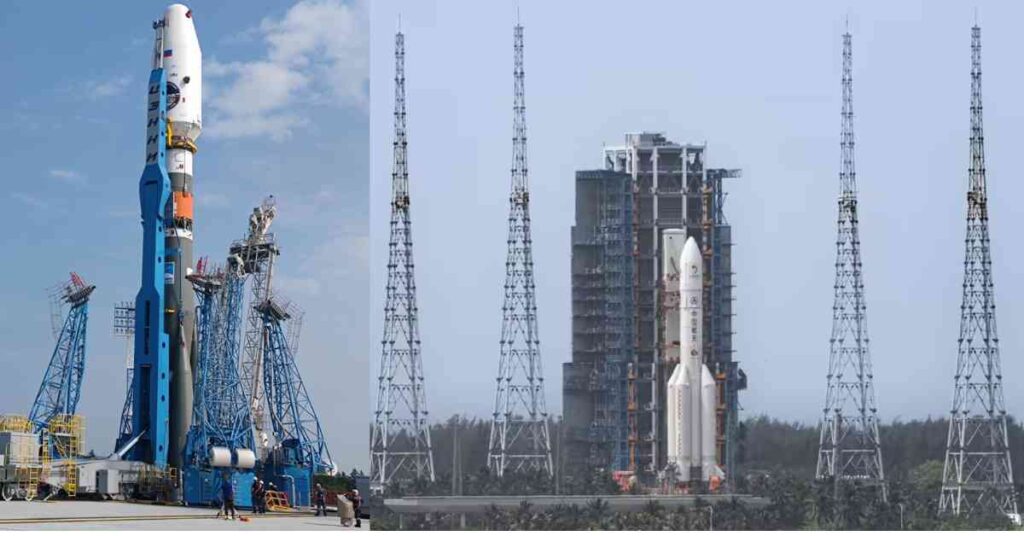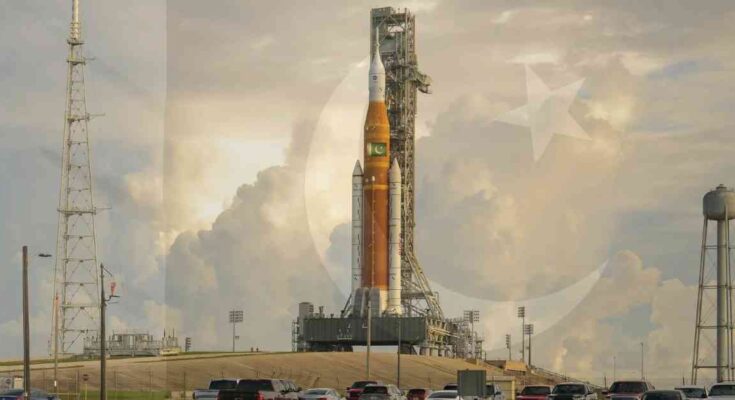Table of Contents
Introduction to Pakistan’s iCube Qamar mission
Pakistan has marked a historic milestone in its space exploration journey with the successful launch of its first moon mission, named ‘iCube Qamar.’ This groundbreaking endeavor signifies Pakistan’s entry into the realm of lunar exploration, elevating its status in the global space community.
Background of Space Exploration in Pakistan
Despite being a newcomer in space exploration, Pakistan has made significant strides in recent years. The establishment of the Space and Upper Atmosphere Research Commission (SUPARCO) laid the foundation for the country’s space program, focusing on satellite technology and scientific research.
The Significance of iCube Qamar Mission

The iCube Qamar mission holds immense significance on various fronts. Firstly, it showcases Pakistan’s technological prowess and scientific capabilities on the international stage. Secondly, it fosters national pride and unity among citizens, reinforcing the country’s commitment to advancing in the field of space exploration.
Advancements in Space Technology
The successful launch of iCube Qamar demonstrates Pakistan’s ability to develop and deploy sophisticated spacecraft, equipped with cutting-edge technology and instruments for scientific research.
National Pride and Scientific Achievement
For Pakistan, the iCube Qamar mission symbolizes a moment of pride and achievement, highlighting the nation’s determination to explore new frontiers and contribute to humanity’s collective knowledge of space.
Mission Objectives and Goals
The primary objectives of the iCube Qamar mission encompass scientific research and technological innovation. Through this mission, Pakistan aims to conduct detailed studies of the lunar surface, analyze lunar soil composition, and gather crucial data for future lunar missions.
Scientific Research
One of the key goals of the iCube Qamar mission is to advance our understanding of the moon’s geology, atmosphere, and environment. By conducting experiments and collecting data, scientists hope to unravel mysteries surrounding the moon’s formation and evolution.
Technological Innovation
In addition to scientific research, the iCube Qamar mission serves as a platform for testing and showcasing Pakistan’s indigenous space technologies. From propulsion systems to communication modules, every aspect of the spacecraft reflects Pakistan’s commitment to innovation and self-reliance in space exploration.
iCube Qamar Spacecraft Overview

The iCube Qamar spacecraft is a marvel of engineering, designed to withstand the harsh conditions of space and execute complex maneuvers with precision.
Design and Features
Crafted with meticulous attention to detail, the iCube Qamar spacecraft boasts a streamlined design optimized for lunar exploration missions. Its lightweight yet sturdy construction ensures optimal performance during its journey to the moon and back.
Payloads and Instruments
Equipped with state-of-the-art scientific payloads and instruments, the iCube Qamar spacecraft is poised to gather valuable data about the lunar surface. These payloads include high-resolution cameras, spectrometers, and magnetometers, among others, enabling comprehensive lunar mapping and analysis.
Launch Details and Timeline
The journey of iCube Qamar from conception to launch is a testament to Pakistan’s dedication and perseverance in realizing its space exploration aspirations.
Preparation Phase
Months of meticulous planning, rigorous testing, and collaboration with international partners preceded the launch of iCube Qamar. From spacecraft assembly to payload integration, every stage of the mission demanded precision and expertise.
Launch Event
The historic launch of iCube Qamar captured the world’s attention, as Pakistan’s space agency, SUPARCO, successfully propelled the spacecraft into lunar orbit. The launch event marked a significant milestone in Pakistan’s space program, heralding a new era of exploration and discovery.
Collaboration and International Partnerships
While iCube Qamar represents Pakistan’s independent foray into lunar exploration, the mission also underscores the importance of collaboration and partnerships in the global space community. Through strategic alliances with other spacefaring nations, Pakistan has leveraged expertise and resources to enhance the success of its space missions.
Challenges and Obstacles Faced During the Mission
The journey to launch iCube Qamar was not without its challenges. From technical hurdles to logistical constraints, the mission encountered various obstacles along the way. However, through resilience and innovation, Pakistan’s space scientists and engineers overcame these challenges, ensuring the success of the mission.
Achievements and Milestones
The successful deployment of iCube Qamar into lunar orbit marked a significant achievement for Pakistan’s space program. From its innovative design to its scientific objectives, the mission has set a precedent for future space exploration endeavors in the country.
Impact on Pakistan’s Space Program
The iCube Qamar mission has catalyzed the growth and development of Pakistan’s space program, paving the way for future missions and collaborations. With newfound confidence and capabilities, Pakistan is poised to further its contributions to space exploration and scientific research on a global scale.
Future Prospects and Missions
Looking ahead, Pakistan remains committed to expanding its presence in space and undertaking ambitious missions to explore the cosmos. From lunar landings to deep space exploration, the possibilities for Pakistan’s space program are boundless, fueled by innovation and determination.
Public Reception and Enthusiasm
The launch of iCube Qamar has captured the imagination of people across Pakistan, igniting a sense of pride and excitement about the country’s achievements in space exploration. The mission has inspired the next generation of scientists, engineers, and innovators to pursue careers in STEM fields, ensuring a bright future for Pakistan’s space program.
Global Recognition and Media Coverage
The iCube Qamar mission has garnered international acclaim, with media outlets and space agencies worldwide highlighting Pakistan’s contributions to space exploration. The success of the mission has solidified Pakistan’s position as a rising star in the global space community, earning recognition and respect from its peers.
Conclusion
In conclusion, Pakistan’s first moon mission, iCube Qamar, represents a monumental leap forward for the country’s space program and a source of pride for its citizens. With its successful launch and ambitious objectives, iCube Qamar has paved the way for a new era of space exploration in Pakistan, fueled by innovation, collaboration, and determination.




